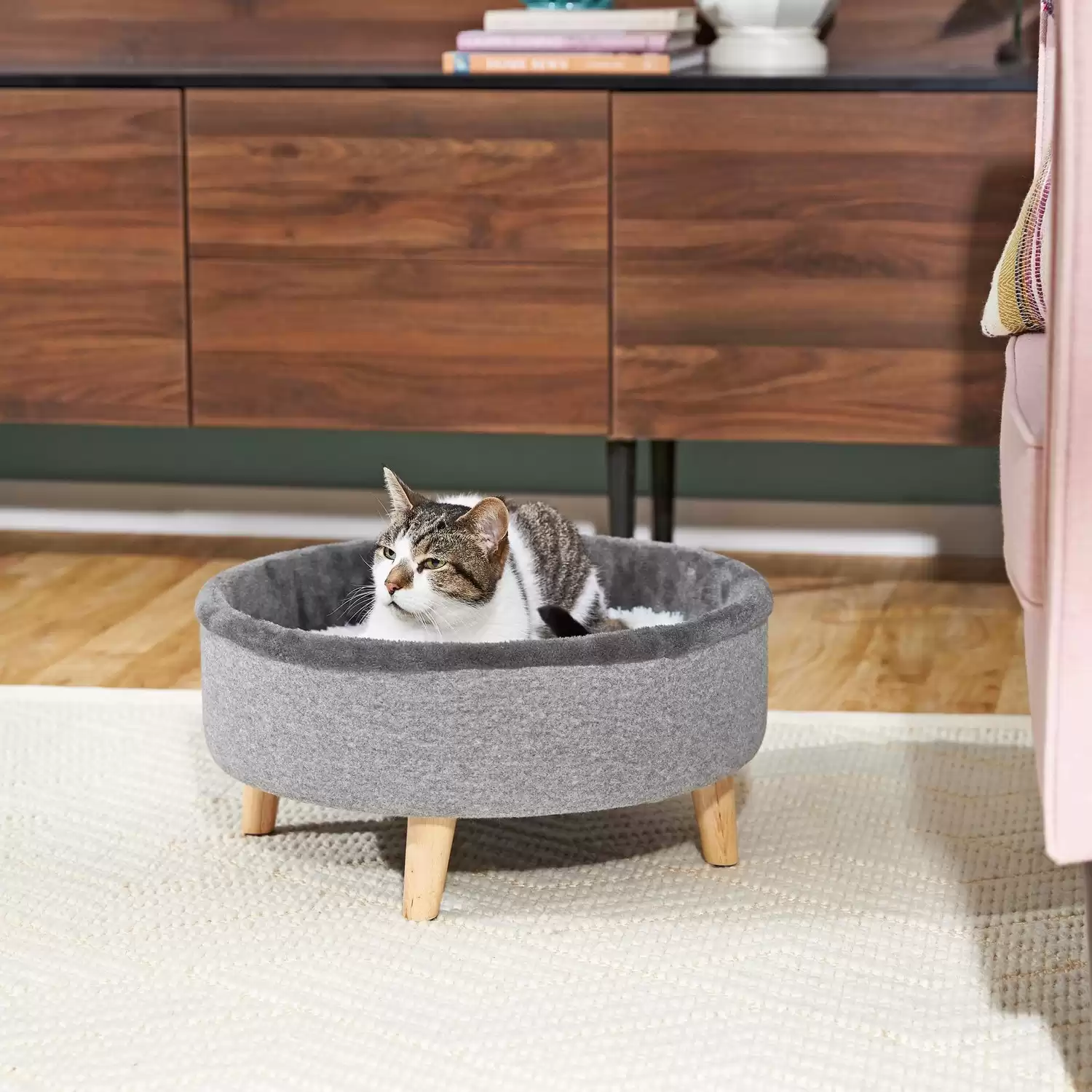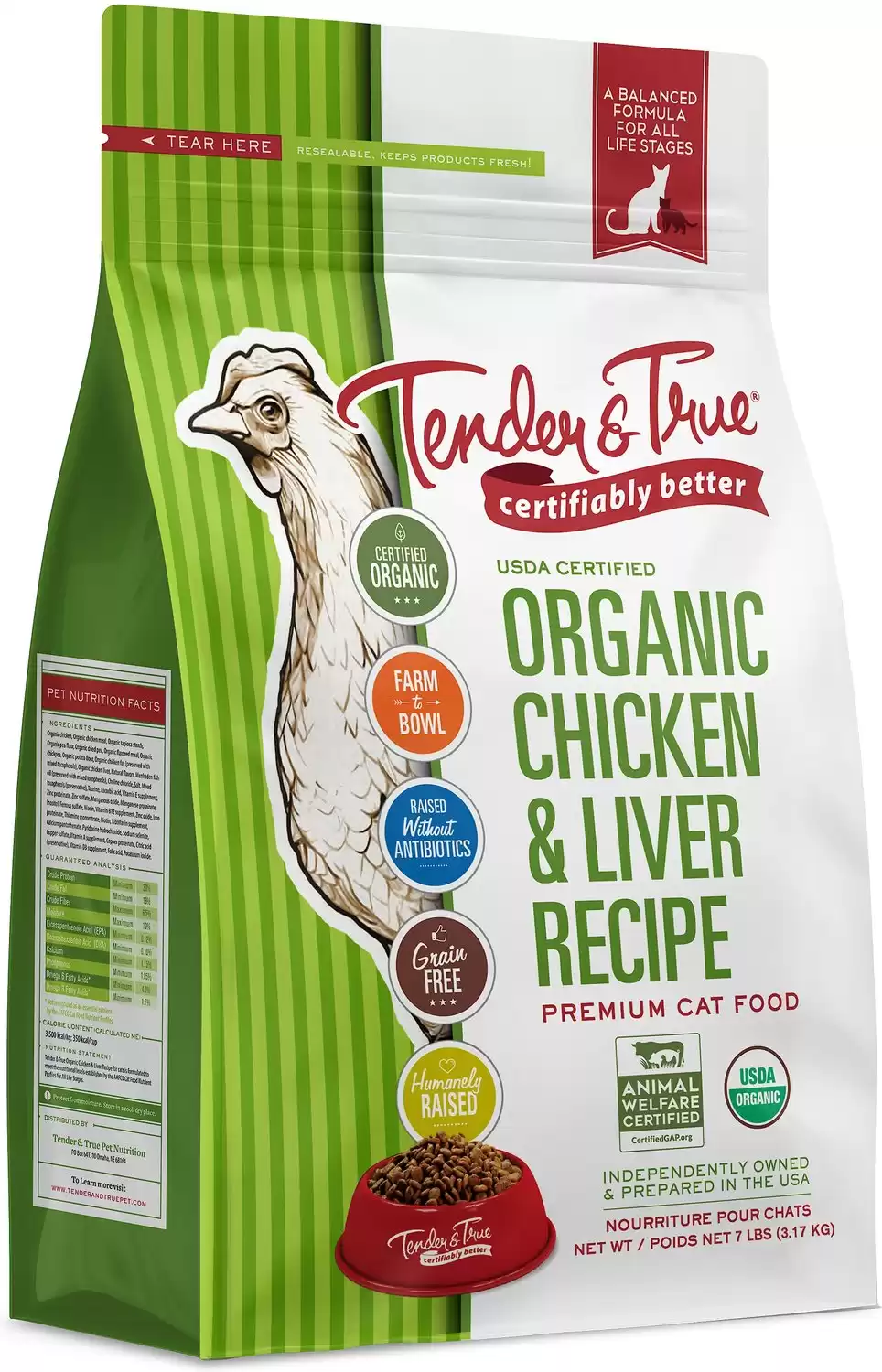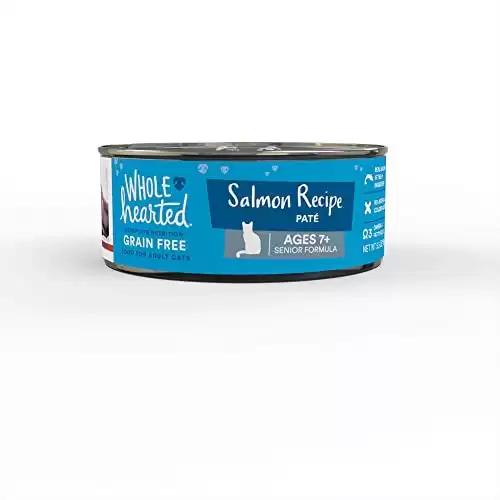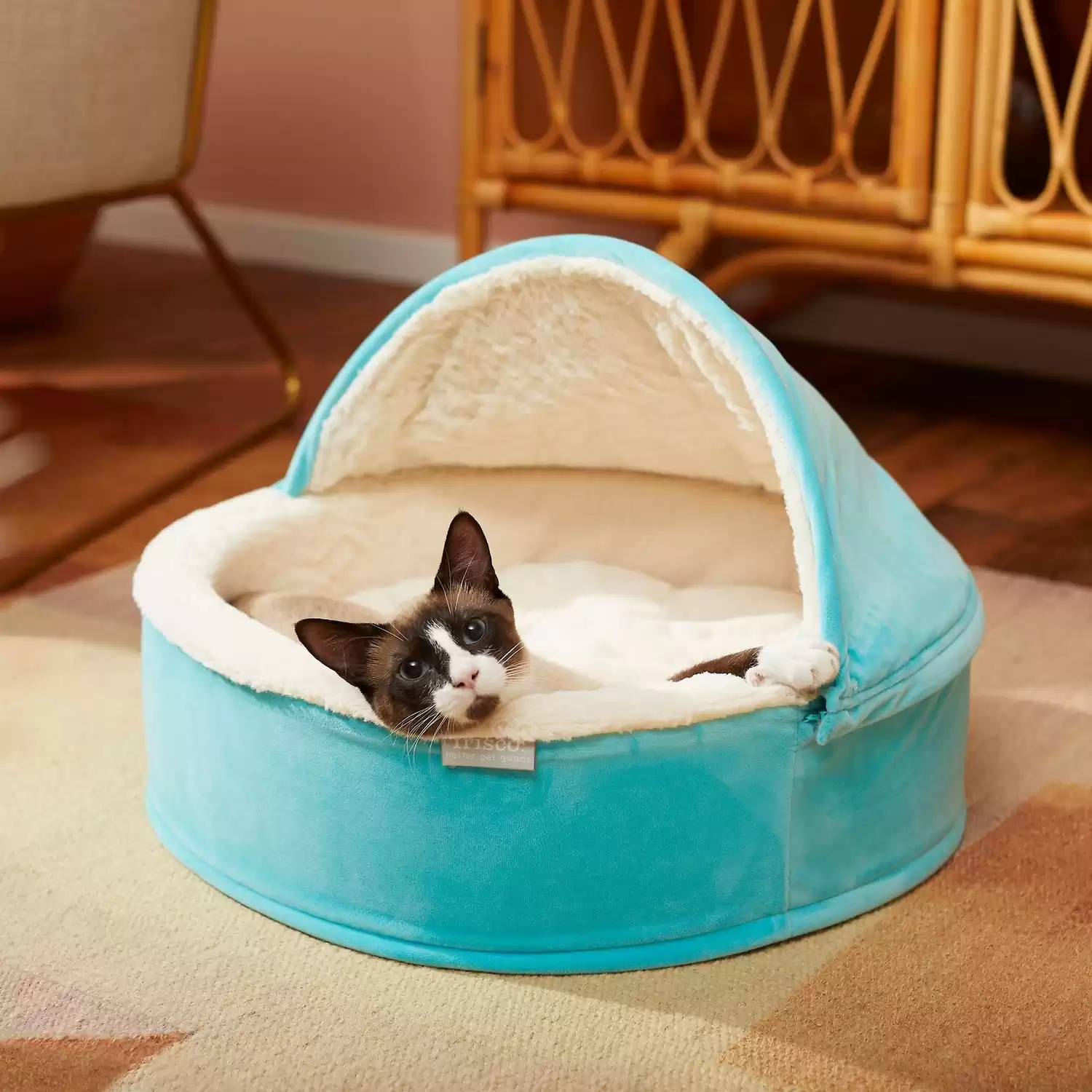A cat’s way of behaving and communicating is more challenging to understand than a dog’s. Cats communicate in several ways. The most common way that cats communicate is by purring. But there is not much known about this method of communication. Purring in cats is believed to be partly spontaneous and voluntary.
Humans and animals have different ways of expressing contentment. Humans smile, and dogs wag their tails. It is general knowledge amongst cat owners that cats purr when they’re happy. But this is not the only reason they make the soft vibrating sound associated with purring.
As a cat owner, you might never know exactly what your cat is trying to convey with its purr. But it’s possible to make a guess when you analyze the situation surrounding the purr. The questions then are, “Why do cats purr?” and “How do they purr? This article will provide answers to both questions.
Why Cats Purr?
Cats purr when they are happy, stressed out, or want to calm themselves. Most people assume that a cat only purr when happy, but this is not the case. Cats purr for a variety of reasons other than happiness. But, purring is the most popular mechanism cats use to express contentment.
The Reasons Behind A Cat’s Purr
Contentment
You’ll often observe that cats purr in environments where they feel relaxed and safe. When your cats sit on your lap and you stroke them, you’ll feel the soft vibration of their purr. You might also notice that you feel calm while stroking them. The waves of calmness they send out tell you that your cat is feeling happy.
If you notice your cat purring while looking relaxed with its tail still and eyes half-closed, it is in a good mood.
- Round elevated bed with attractive, modern styling
- Soft fur lining
- Sleek wood legs
- Stylish design
- Includes a removable, machine-washable pillow
Stress or Fear
Purring in cats is often a sign of happiness. However, there are situations where your cat might purr to express feelings of stress and fear. To know if your cat is scared or nervous, observe its body language.
When your cat is scared, you’ll notice it has flattened ears and wide eyes with huge pupils. It is during this moment that you might notice it purring to calm itself. A cat’s purr in distress can be likened to a human humming when nervous.
Furthermore, scientists theorize that purring can act as a defense mechanism in cats. It can be a way for them to stay calm and comfort themselves in stressful situations. More research needs to be done before this theory proves true.
To Manage Pain
Purring is a way for cats to manage pain and soothe themselves. Most female cats purr during labor to relieve the pain of birthing a kitten. If you notice your cat purring loudly, there is every probability it is in pain.
The purr is a way for it to calm down while in pain and communicate long enough for you to notice. But some cat breeds naturally purr louder than others. If your cat is part of these breeds, it might be purring for other reasons than pain.
- The first ingredient is USDA-certified organic chicken
- The chicken is also certified to be humanely raised
- 100% complete nutrition
- Includes added vitamins, minerals, and trace nutrients
- Free from grain, GMOs, corn, soy, wheat, and artificial colors, flavors, and preservatives
Communication Between Mother Cat and Kitten
Purring is a way for kittens and their mothers to communicate and form a bond. Kittens are born deaf and blind. They remain like this until around two weeks after birth.
But kittens begin to purr a few days after they are born. They do this to help their mothers locate them and signify their hungry status. Purring also helps a female cat bond with its kitten. Purring from a mother cat to its kitten can serve as a lullaby.
To Heal Themselves
Scientists believe that a cat’s purr can stimulate healing in the cat. A cat purrs at a frequency of 25 hertz. This low-frequency vibration is similar to the one used to promote muscle strength and stimulate bone growth in humans.
To this end, you’ll notice that most cats have few problems with their joints and bones. The vibration from purring can help to reduce swelling, improve joint mobility, heal infections and offer pain relief.
To Signify Hunger
Your cat can purr to let you know it’s time for feeding. Researchers believe that cats have perfected a purr to get them fed sooner. Instead of meowing, they make a “solicitation purr” to get you to do what they want.
Also, this solicitation purr is more acceptable to humans than meowing when cats need to eat. It portrays urgency and unpleasant feelings. Most people notice this special purr occurs in households where the cats have a personal relationship with their owners. It is less likely for the purr to be ignored in households like this.
- Designed to meet the unique needs of senior cats
- Salmon is the primary ingredient
- Enriched with vitamins, minerals, and antioxidants
- Promotes healthy skin and coats
Cat’s Purring Mechanism
Now that you understand why cats purr, you might be wondering how they purr. Cats have no special equipment that enables their purring. In a cat’s body, purring starts from the brain. It involves the joint effort of the neural oscillator in the cat’s brain, laryngeal muscles in the throat, and the larynx.
So, the neural oscillator in the cat’s brain sends a signal to the larynx. This signal causes the laryngeal muscles in the throat to twitch rapidly. The rapid twitching of the throat muscles causes the vocal cords to separate as the cat inhales and exhales. Air moving past the vibrating muscles as the cat exhales and inhales causes the purring sound the cat makes.
- Hooded zipper design
- Covered in bright, teal velvet
- Inner sherpa fabric is super soft
- Removable cushion is machine washable
Do Cats Purr While Sleeping? Why?
Yes, cats can purr while sleeping. They can do this for a variety of reasons. You might have noticed your cat making adorable noises or purring while sleeping. Your cat can purr in its sleep because it is happy and comfortable. As far as their cat beds are comfy and the environment is safe, cats will most likely purr while they sleep.
Moreover, do you know that cats are capable of dreaming?. You might notice your cat making little purr-like noises with its toes and paws twitching while sleeping. These little movements indicate that your cat is dreaming.
Why Your Cat Might Be Snoring In Its Sleep and Not Purring
While a sleeping cat’s purrs can be because of happiness or dreams, there are instances where the loud purr is a snore. Snoring is common in cats and often doesn’t mean something is amiss. When your cat purrs loudly, it might actually be snoring if it is obese(overweight).
Are Domestic Cats The Only Ones Who Can Purr?
No. Domestic cats aren’t the only ones capable of purring. Cats in the wild and their close relatives are also capable of purring. You might be surprised to note that even raccoons, guinea pigs, and hyenas can purr.
Similarly, wild cats that can roar cannot purr. In contrast, wild cats that can purr cannot roar. Scientists believe that the cats who can’t purr developed the roaring ability to protect their territories.
Do Cats Purr When Dying?
A cat can purr when dying. While some cats prefer to die in solitude, others want the company of their loved ones when dying. Purring is known to provide comfort and strengthen a cat’s muscles. Hence, a dying cat might purr to cope with the pain and discomfort it is currently experiencing.
Can Your Cat Purr At You and Bite You Afterwards?
Most times, biting is a sign of aggressiveness in cats. You might have noticed your cat purring in your lap one minute, and then suddenly it bites you. This behavior could indicate that your cat feels sick and your stroking is no longer welcome.
Also, the biting might be a form of affection from your cat. It would be best to observe your cat and decide what it likes and dislikes.
How Does Cat Purring Help Humans
Scientists believe that a cat’s purr can heal humans. When cats purr, they release a hormone called endorphin. This hormone is responsible for feelings of excitement and happiness.
The reason why you feel calm and less stressed when stroking your cat is because of the “happy hormone” they secrete. Scientists also believe that cat purring works similar to vibration therapies. This is a therapy that doctors have used for several years to cause a healing effect on physical and mental wellbeing.
Research has shown that the vibration from a cat’s purr lowers blood pressure and relieves stress. Thus, humans can reduce the risk of heart-related disease when their cats purr on them.
- High-quality fat content from sunflower and tuna oil
- Probiotic bacteria promote gut health
- Very affordable
- High-quality protein from chicken
In Summary
Cats purr for a wide variety of reasons. They might purr to soothe themselves in painful or stressful situations. They can also purr to express contentment or hunger. A cat’s purr is more urgent and high-pitched when they want something like their cat food from you.
You have to pay close attention to your cat to decipher what its purr is saying. If your cat is purring at the vet, it is most likely scared or anxious. If your cat is purring on your lap at home but acting strangely, it might be hurt. Knowing the reason behind your cat’s purr can help you easily communicate with your cat. It can also help you deepen your bond with your cat.
The photo featured at the top of this post is © iStock.com/NiseriN
Thank you for reading! Have some feedback for us? Contact the AZ Animals editorial team.











